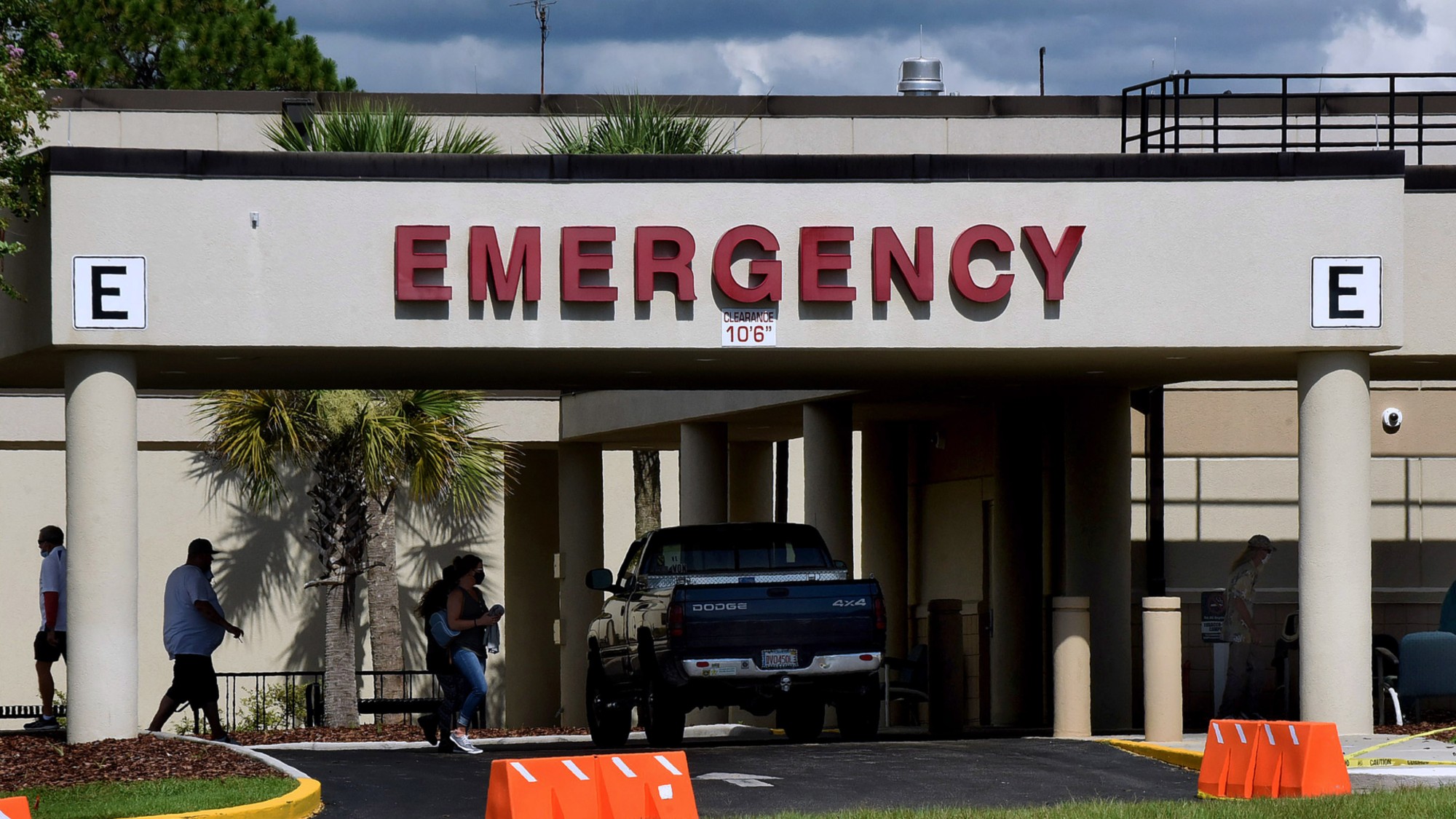By Justin Klawans
Copyright theweek

SUBSCRIBE & SAVE
Less than $3 per week
View Profile
The Explainer
Talking Points
The Week Recommends
Newsletters
From the Magazine
The Week Junior
Food & Drink
Personal Finance
All Categories
Newsletter sign up
the explainer
Private equity firms might be causing more deaths in hospital ERs
Deaths in ERs purchased by private equity firms rose 13%
Newsletter sign up
Approximately ‘488 U.S. hospitals are owned by private equity firms’
(Image credit: Paul Hennessy / SOPA Images / LightRocket / Getty Images)
Justin Klawans, The Week US
24 September 2025
There has been a surge in recent years of private equity groups buying hospitals throughout the U.S., and emerging evidence suggests this may have unintended consequences. Following a hospital’s purchase by a private equity group, deaths in the emergency room increase significantly, according to new research. This data is adding to a slew of other health- and business-related complaints as more hospitals are being snapped up by private equity.
How much are deaths increasing at these hospitals?
After a private equity firm acquires a hospital, its emergency room death rate increases by 13.4%, or about seven additional deaths per 10,000 patients, according to research in the journal Annals of Internal Medicine. This data was based on “1,007,529 emergency department visits and 121,080 ICU hospitalizations across 49 private equity hospitals” from 2009 to 2019, said the journal. This was compared to data from 293 hospitals that were not acquired by private equity.
This is not the first study to find a link between private equity hospitals and ER deaths, but it “adds fresh evidence to previous studies showing harmful patient outcomes and higher costs among health care entities owned by profit-oriented financiers,” said NBC News. And this new research “differed from previous studies on private equity’s impact, which focused on patients who were admitted to the hospital” and not emergency rooms.
Escape your echo chamber. Get the facts behind the news, plus analysis from multiple perspectives.
SUBSCRIBE & SAVE
Sign up for The Week’s Free Newsletters
From our morning news briefing to a weekly Good News Newsletter, get the best of The Week delivered directly to your inbox.
From our morning news briefing to a weekly Good News Newsletter, get the best of The Week delivered directly to your inbox.
The study also concluded that hospitals under the control of private equity firms have “reduced salaries and staffing relative to nonacquired hospitals,” said the journal. This could “explain the increased patient transfers to other hospitals, shortened ICU lengths of stay and increased emergency department mortality.”
Why is this happening?
The culprit is probably “decreases in overall staffing and salary expenditures,” said The Boston Globe. Private equity hospitals reduced ER salaries by 18.2% and ICU salaries by 15.9%, and this is “likely due to a combination of reducing staff and filling roles with less expensive — often meaning less experienced — labor.” This in turn has led to more deaths among these hospitals, and “deaths went up even as private equity acquired hospitals sent more of their sickest patients to other hospitals.”
This study “shows that those financial strategies may lead to potentially dangerous, even deadly consequences,” study author Dr. Zirui Song, a professor of health care policy at Harvard University and general internist at Massachusetts General Hospital, said to Newsweek. This is especially true among Medicare patients who are often “older and more vulnerable.”
This is at odds with the stated goal of private equity firms, experts say. “When private equity comes in, they try to jack up the revenues and then, when that reaches an endpoint, they start slashing expenses,” Dr. Robert McNamara, the chair of the department of emergency medicine at Temple University, said to NBC. Instead of “people just losing their jobs, you have bad patient outcomes here. Less staff equals worse outcomes.”
Sign up for Today’s Best Articles in your inbox
A free daily email with the biggest news stories of the day – and the best features from TheWeek.com
Contact me with news and offers from other Future brandsReceive email from us on behalf of our trusted partners or sponsorsBy submitting your information you agree to the Terms & Conditions and Privacy Policy and are aged 16 or over.
But even as this data is showing increased death rates, private equity hospitals aren’t going away. As of April 2025, approximately “488 U.S. hospitals are owned by private equity firms,” per the Private Equity Stakeholder Project. This includes 8.5% of all private hospitals and 22.6% of all for-profit hospitals; almost a quarter of these facilities, 22.6%, are also psychiatric hospitals. Many of these hospitals are also the only option for health care in their communities, as “27.7% of private equity-owned hospitals serve rural populations.”
Justin Klawans, The Week US
Social Links Navigation
Justin Klawans has worked as a staff writer at The Week since 2022. He began his career covering local news before joining Newsweek as a breaking news reporter, where he wrote about politics, national and global affairs, business, crime, sports, film, television and other news. Justin has also freelanced for outlets including Collider and United Press International.
Color Theories: Julio Torres’ one-man show
Performance Space New York
Performance Space New York
Gen Z is facing a credit score crisis
In the Spotlight
The average Gen Z credit score has dropped three points in 2025
Is Trump’s Justice Department giving up on corruption?
Today’s Big Question
Justice Department cuts back while going after president’s enemies
You might also like
Why are autism rates increasing?
The Explainer
Medical experts condemn Trump administration’s claim that paracetamol during pregnancy is linked to rising rates of neurodevelopmental disorder in US and UK
RFK Jr. vaccine panel advises restricting MMRV shot
The committee voted to restrict access to a childhood vaccine against chickenpox
Why social media is obsessed with cortisol
In The Spotlight
Wellness trend is the latest response to an increasingly maligned hormone
Quit-smoking ads are being put out
Under the radar
The dissolution of a government-funded campaign could lead to more smokers in the future
Scientists are speeding up evolution
Under the radar
Proteins can evolve in minutes
Sloth fever shows no signs of slowing down
The explainer
The vector-borne illness is expanding its range
Texas declares end to measles outbreak
The vaccine-preventable disease is still spreading in neighboring states, Mexico and Canada
How China is battling the chikungunya virus
Under The Radar
Thousands of cases of the debilitating disease have been found in the country
View More ▸
Contact Future’s experts
Terms and Conditions
Privacy Policy
Cookie Policy
Advertise With Us
The Week is part of Future US Inc, an international media group and leading digital publisher. Visit our corporate site.
Future US, Inc. Full 7th Floor, 130 West 42nd Street



